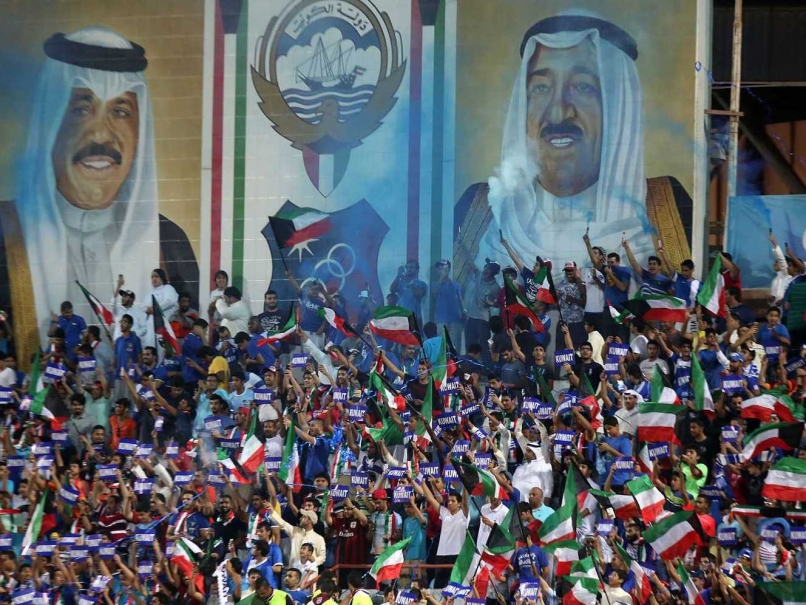By Andrew Warshaw
May 13 – Hours away from the start of the 66th FIFA congress in Mexico, on the sidelines Kuwaiti clubs were stepping up their protest to end the country’s exclusion from international football.
Last October football’s world governing body joined several other global sporting bodies, notably the International Olympic Committee, in suspending Kuwait from international events and competition ruling that new laws constituted interference in sport. As a result Kuwaiti clubs sent a delegation, headed by the captain of the country’s 1982 World Cup side, to the FIFA congress to lobby national federations.
Congress delegates are due to vote on a recommendation from FIFA’s new governing council to rubber-stamp Kuwait’s exclusion which would confirm its expulsion from the current 2018 World Cup qualifying competition and also mean it cannot receive any FIFA funding.
Since the start of the week, representatives of Kuwaiti clubs have been holding meetings to explain the crisis – from the elite to grassroots.
“The situation in Kuwait is concerning for the FIFA family, especially because this affects the football at its core – Kuwait football players, coaches and referees must get back on the pitch,” said a statement issued by the newly-formed Kuwait Football Clubs grouping
Saad Al-Hootie, who captained Kuwait’s 1982 World Cup side, said: “ Our clubs from all leagues, players from all levels and the development system have been completely blocked from any activity for more than half a year now.
“The most frustrating part in all of this is that our FA is not doing anything to have the suspension lifted. This is why we are in Mexico City this week, to defend the future of football in our country. And also tell our side of story. FAs are making a big decision on Friday and we want to make sure they have all the information they need to support us in lifting the ban.
Abdullah Al-Maayouf, member of the National Assembly of Kuwait said: “The process that led to our suspension was unclear, unfair and not worthy of the new FIFA administration. No proper legal investigation was made by FIFA before the suspension was imposed. It happened within three weeks last autumn, at a time when FIFA was in a leadership vacuum.”
The grouping is convinced that political agendas lie behind the suspension “because only sports organisations where certain people from Kuwait have a lot of influence have suspended Kuwait.”
“We believe that these international sport leaders from Kuwait pushed for the suspension in order to drive their personal political agendas,” said Al-Maayouf. “It is very sad that because of some personal conflicts it makes Kuwait lose all our possibilities of participating in world football . . . It’s not about football it’s about something else.”
Al-Maayouf was clearly referring to Olympic and FIFA supremo Sheikh Ahmad Al-Fahad Al-Sabah who wields enormous power in Kuwait and the region as a whole.
“There is something personal between him and the government and some of the royal family,” he was quoted as saying. “How can it be allowed for someone to be so strong to cause such a problem? He has a very powerful position in many of the sports federations in Asia and the Far East.”
Contact the writer of this story at moc.l1745117362labto1745117362ofdlr1745117362owedi1745117362sni@w1745117362ahsra1745117362w.wer1745117362dna1745117362

